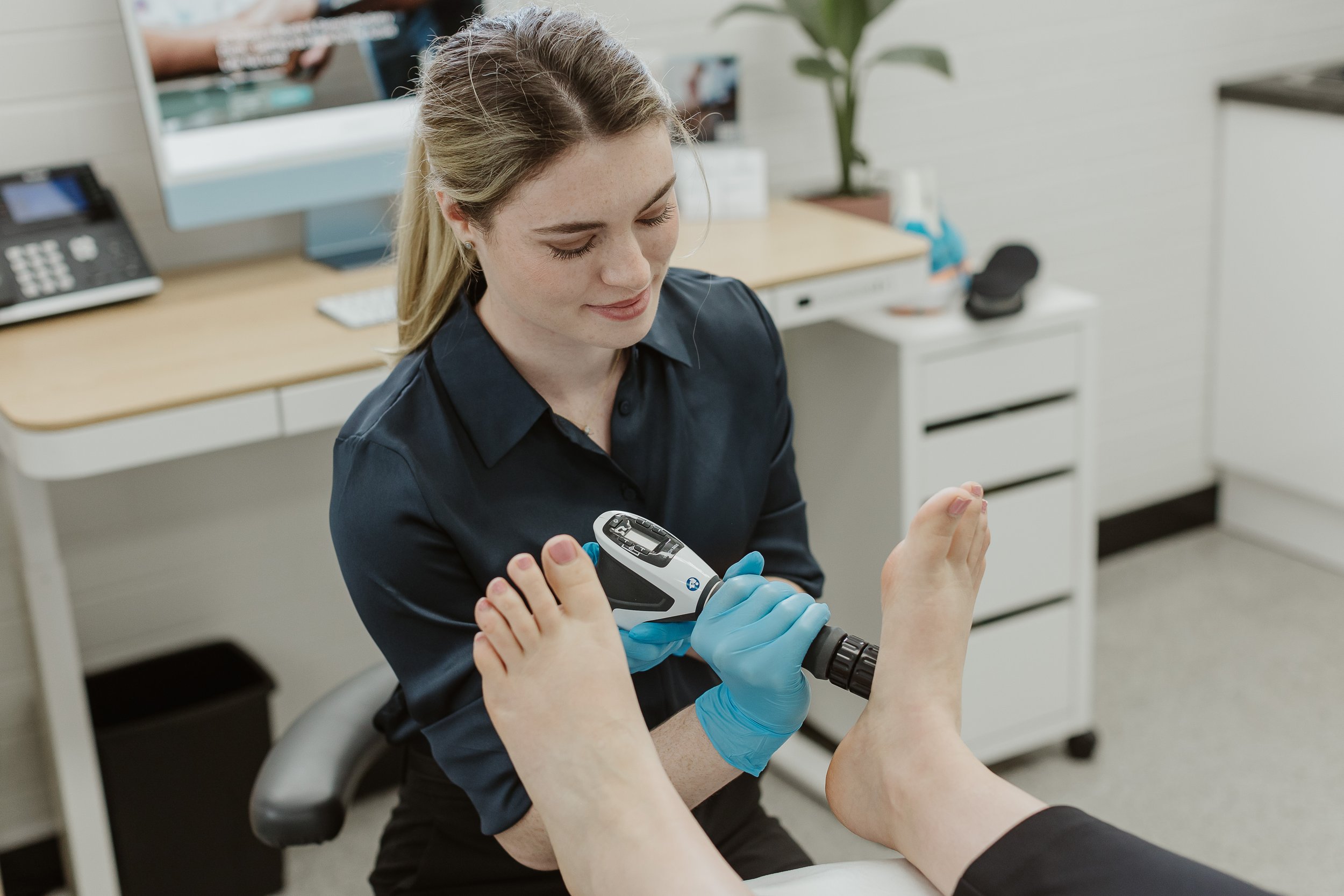Tired of Heel Pain? Let’s Get You Back on Your Feet!
Do you experience sharp or stabbing pain in your heel when you step out of bed? Is it worse after standing for long periods of time? If this sounds like you, the podiatrists at JS Podiatry can help!
Plantar fasciitis, or better termed, plantar fasciopathy, is one of the most common foot problems we treat! Plantar fasciitis often presents as pain in the inner side of the heel and can extend through your arch.
What actually is plantar fasciitis?
Plantar fasciitis occurs when the plantar fascia, the band of connective tissue stretching from your heel bone to your toes, which supports your arch, experiences repetitive stress and overuse. Over time, this results in the plantar fascia undergoing thickening and degenerative changes, leading to heel pain!
Common risk factors for developing plantar fasciitis
Spending long periods of time on your feet
Overuse: too much too soon
Flat feet or high-arched feet
Non-supportive footwear
Activities such as running and dancing where the big toe is often stretched
Decreased flexibility and weakness in the ankles, calves, and hamstrings
Symptoms of plantar fasciitis
Sharp pain in the inside of the heel, which can extend to the arch
Pain is worse in the morning and decreases with activity
Post-activity pain in the heels and arches
Painful ache in heels throughout the day and at rest when plantar fasciitis becomes more severe
Effective treatments for plantar fasciitis
As mentioned above, there are many factors that put an individual at risk of developing of plantar fasciitis. Our goal is to identify the cause of your plantar fasciitis and create an individualised treatment plan. After thorough assessment, here are some examples of effective evidence-based treatments for plantar fasciitis:
Reducing aggravating activity depending on severity
Regular icing - using a frozen water bottle under the arch works well
Introducing a stretching and strengthening program for the plantar fascia and calf muscles
Strapping the foot to support the plantar fascia
Footwear modification and education
Biomechanical correction with custom orthotics and insoles
Manual therapy and dry needling of the calf muscles
Shockwave therapy
Steroid injections (used in combination with other treatments)
How JS Podiatry Can Help
Without proper treatment, plantar fasciitis can become chronic and impact your daily activities. The expert podiatrists at JS Podiatry will work with you to assess your lower limb biomechanics, symptoms, and lifestyle factors, to form our diagnosis. This will allow us to create a personalised treatment plan to address your plantar fasciitis pain.
We often refer patients for an ultrasound to visualise how thickened the plantar fascia is, and to rule out other diagnoses, such as tears. X-ray imaging is also helpful to determine if there is a bone spur, which can also contribute to your pain.
JS Podiatry has the newest evidence-based technologies, which can help you get back on your feet, and back to your healthy self!




